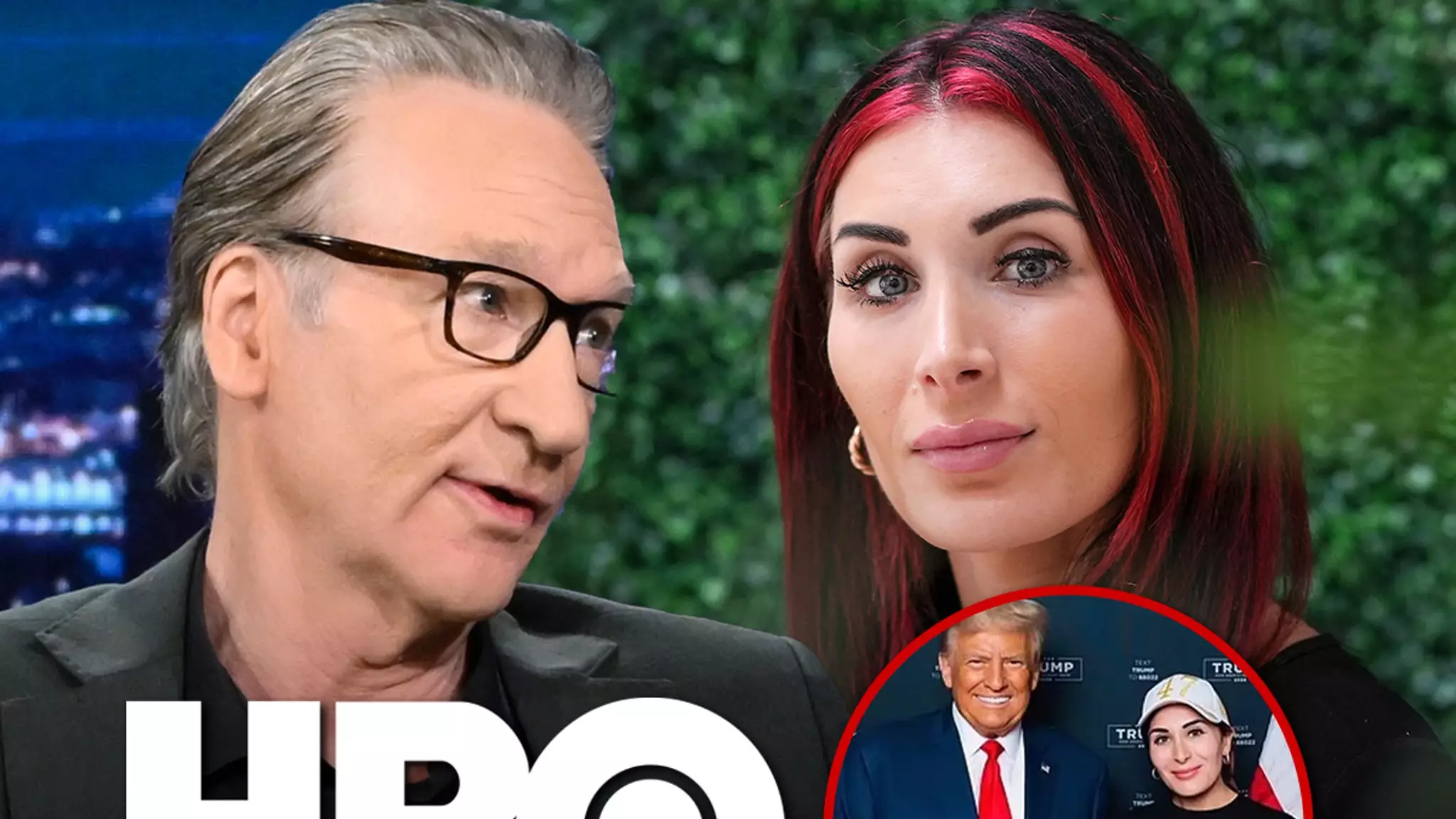The intersection of media and politics often breeds controversy, and the recent feud between comedian Bill Maher and conservative activist Laura Loomer is yet another example. Loomer, known for her staunch support of former President Donald Trump, has filed a staggering $150 million lawsuit against Maher and HBO. This lawsuit arises from statements Maher made on his show, “Real Time with Bill Maher,” that Loomer claims slandered her character and reputation.
In the episode airing on September 13, 2024, Maher made a provocative remark about Loomer, suggesting that she might be involved in an “arranged relationship” with Trump because of her close ties to him. During his commentary, he mused about Trump’s previous romantic escapades and insinuated that Loomer could be his latest paramour. Loomer was incensed, countering that Maher’s claims were “false, malicious, and defamatory.” She staunchly maintains that any suggestion of a romantic link between her and Trump is unfounded and an egregious attack on her integrity.
Loomer’s lawsuit goes beyond personal indignation; she asserts that Maher lacked any substantial evidence to back his allegations. Her statement emphasizes that Maher crafted these sensational claims simply to attract viewers and elevate his profile within a media landscape known for its tabloid-style reporting. She accuses him of seeking fame at her expense, leading to reputational harm and emotional distress.
This legal battle raises significant questions about the limits of free speech and the responsibilities that come with it. As Maher operates in the realm of political satire, his statements often tread a fine line between humor and slander. Critics may argue that such commentary is par for the course in a politically charged atmosphere, while supporters of Loomer may see it as a dangerous precedent that emboldens unchecked speculation and rumor-mongering in political discourse.
Moreover, Loomer’s lawsuit serves as a reflective moment on the ethical responsibilities of media figures. The breadth of Maher’s platform provides him with a considerable influence that carries with it a moral obligation to avoid reckless disregard for the truth. When high-profile personalities like Maher make unverified allegations, it not only impacts the individuals involved but also shapes public narratives and perceptions, highlighting the potential for misinformation to spread.
The controversy reached a boiling point when Trump himself commented on Maher’s remarks through his social media platform, labeling the host a “befuddled mess” and dismissing his show as “boring.” This public endorsement from Trump could potentially galvanize supporters around Loomer’s cause and complicate the reputational stakes for Maher.
As the lawsuit develops, it remains to be seen how the courts will interpret the boundaries of political satire. Loomer is asking for an astronomical sum in damages, reflecting the severity with which she views the impact of Maher’s comments. The outcome will likely reverberate beyond this case, shaping future interactions between media commentary and political figures in an increasingly polarized environment. As audiences await the court’s ruling, the saga underscores the fine line between entertainment and accountability in modern media.


Leave a Reply